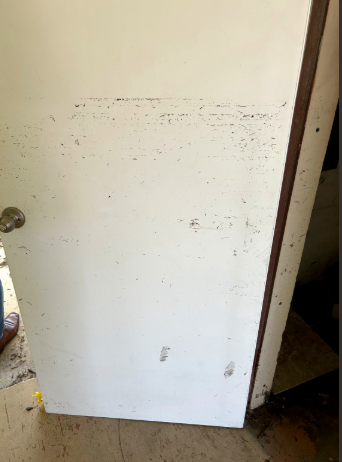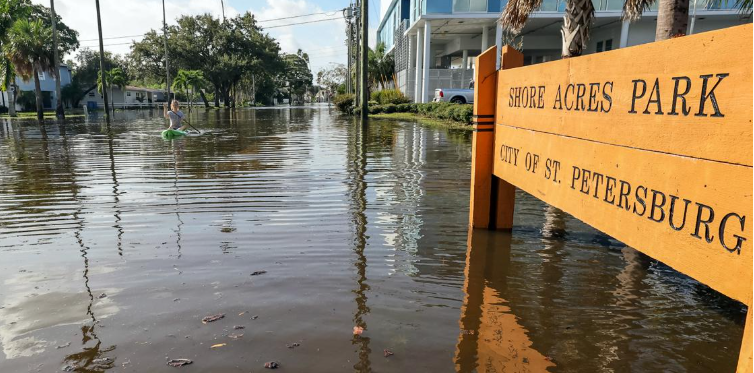New Flood Disclosure Requirements for Florida Property Managers and Landlords
As of October 1, 2025, Florida property managers and landlords face a new requirement aimed at improving transparency and tenant protection. Governor Ron DeSantis has signed Senate Bill 948 (2025) into law, establishing Florida Statute 83.512. The statute requires landlords to provide a flood disclosure form to prospective tenants before signing a residential lease. Even if a property has never flooded, landlords must still have tenants sign the disclosure form. This measure reflects growing concerns about flood risks and storm impacts across Florida, particularly after several record-breaking flood events in 2024.
Why This Law Matters: Lessons from a Flooded Year
Florida’s rental market is no stranger to extreme weather, but 2024 served as a wake-up call. That year brought a string of severe storms and floods that underscored how vulnerable even inland areas can be:
- Hurricane Helene (September 2024) slammed into Florida’s Big Bend region as a Category 4 hurricane, causing catastrophic flooding that reached far inland. The National Flood Insurance Program (NFIP) received more than 57,000 flood claims tied to Helene, totaling billions in damage.
- Just weeks later, Hurricane Milton made landfall near Siesta Key as a Category 3 storm, dropping 10–15 inches of rain across central and southwest Florida and triggering flash floods and tornadoes.
- Earlier that summer, a tropical disturbance in June 2024 dumped nearly 28 inches of rain across South Florida in just a few days, flooding homes and streets from Miami to Fort Lauderdale.
These events revealed that flooding isn’t limited to coastal storm surge—it can strike anywhere heavy rainfall overwhelms drainage systems. Lawmakers responded by strengthening disclosure requirements to ensure that tenants know the flood history of a property before they move in.
What the New Flood Disclosure Law Requires
Under Florida Statute 83.512, landlords must answer three key questions about a rental property’s flood history:
- Has the property ever flooded?
Landlords must disclose whether they have personal knowledge of flooding that has damaged the dwelling during their ownership.
- Have any flood insurance claims been filed?
This includes claims made through private insurers or the National Flood Insurance Program (NFIP).
- Has the owner received government assistance for flood damage?
For example, funds or grants from FEMA or other federal or state agencies.
This disclosure must be presented as a separate, standalone document — not hidden within the lease terms — and provided before or at the time of lease signing for any residential lease of one year or longer.

What Counts as “Flooding”?
The statute defines flooding broadly, covering more than just hurricanes or storm surges. It includes:
- Overflow of inland or tidal waters
- Rapid accumulation or runoff of surface water from heavy rain, rivers, or drainage ditches
- Standing water caused by sustained rainfall or poor drainage
Even recurrent minor flooding must be disclosed. This ensures tenants are aware of both major events and smaller, repeat issues that could affect safety or insurance costs.

Consequences for Non-Compliance
If a landlord fails to disclose a property’s flood history and the tenant later experiences “substantial loss” due to flooding, the tenant can:
- Terminate the lease within 30 days of the flood by giving written notice
- Receive a refund of prepaid rent for any period after termination
- Be responsible only for rent or charges accrued before the flooding event
“Substantial loss” is defined as damage where repairs or replacement costs equal 50% or more of the market value of the tenant’s personal property at the time of the flood.
How Landlords and Property Managers Can Prepare
To comply smoothly before the law takes effect:
- Gather flood history records now — insurance claims, FEMA assistance documents, repair receipts, and local flood reports.
- Train leasing staff to understand and explain the disclosure form to new tenants.
- Update lease templates to include the new form as a standard attachment.
- Audit your portfolio to identify high-risk or flood-prone properties early.
- Encourage renters to consider separate flood insurance, since standard renter’s policies typically exclude flood damage.
Building Trust Through Transparency
Ultimately, Senate Bill 948 marks a major step forward for consumer protection in Florida’s rental housing market. In a state where storms like Helene and Milton have left lasting scars, clear and honest communication about flood history isn’t just a legal requirement, it’s good business. By taking proactive steps now, landlords can reduce liability, protect tenants, and strengthen trust through transparency.





